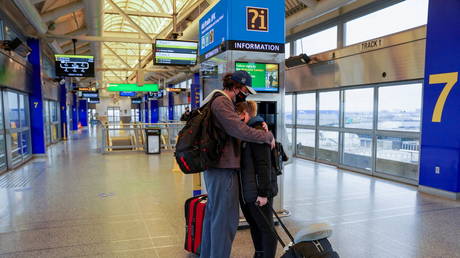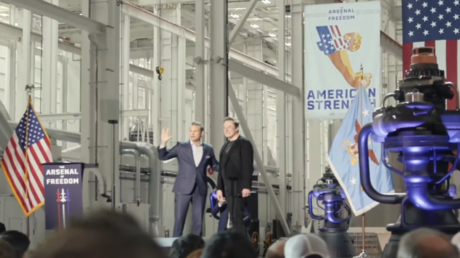
Airline companies have canceled more than 4,500 flights worldwide during the Christmas weekend, citing staff shortages due to the rapid spread of the Covid-19 Omicron variant. The move has sparked chaos at airports.
According to flight tracking firm FlightAware, 2,380 flights were called off and another 11,163 delayed globally on Christmas Eve. The figures for Christmas Day stood at 2,388 cancelations and 2,579 delays as of the afternoon. Another 747 flights scheduled for Sunday have been pulled as well.
US airports accounted for more than a quarter of all cancelations, with United Airlines and Delta being among the worst hit. There were 688 flights pulled across the US on Friday, and a further 980 called off so far over the peak travel weekend.
The majority of the cancelations came from five airlines, with China Eastern forced to call off more than 1,200 journeys over the weekend. Meanwhile, Air China, United, Delta, Jet Blue, and Lion Air have reported large numbers of pulled flights, according to FlightAware’s real-time tracker.
“The nationwide spike in Omicron cases this week has had a direct impact on our flight crews and the people who run our operation,” United said in a statement on Friday, adding that it was “notifying impacted customers” and working to rebook them.
Delta also apologized to customers, noting that it had “exhausted all options and resources – including rerouting and substitutions of aircraft and crews to cover scheduled flying.” The airline attributed the cancelations to both the Omicron variant and poor weather conditions.
Meanwhile, German carrier Lufthansa told AP on Friday that it was canceling 12 transatlantic flights over the holiday period due to a “massive rise” in pilots calling in sick, and despite arranging for a “large buffer” of additional staff for the period.
The last-minute travel chaos added to the frustration for passengers looking to celebrate with their families over the holidays after pandemic precautions severely impacted Christmas in 2020. Airline social media feeds reflected this public anger, with several passengers weathering service delays to demand assistance and refunds.
According to figures released by the American Automobile Association earlier this month, airlines were expected to see an 184% increase in traffic between December 23 and January 2 from 2020. The US Transportation Security Administration expected to screen nearly 30 million people between December 20 and January 3.




